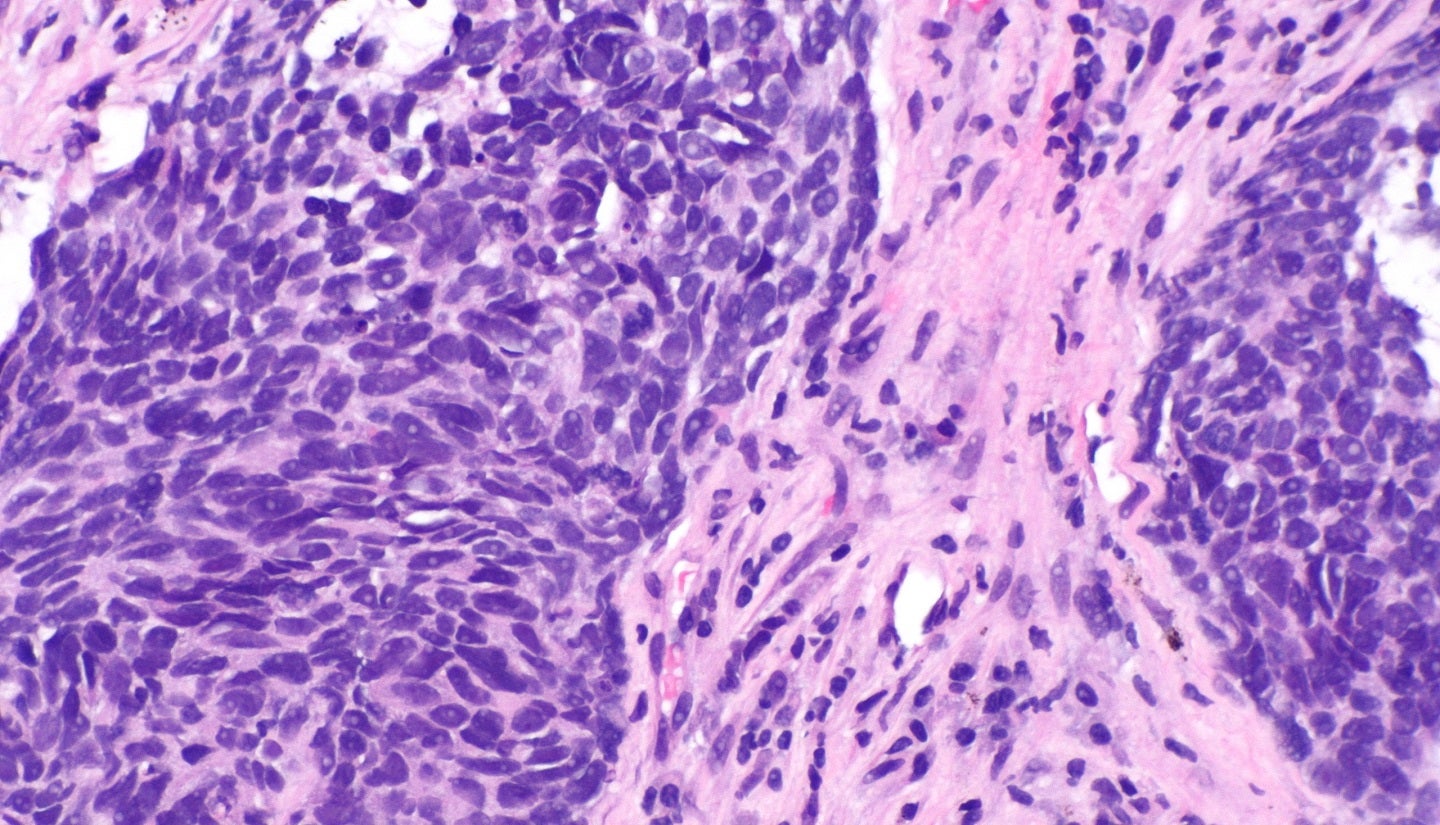
AstraZeneca has reported that its monoclonal antibody Imfinzi (durvalumab) significantly improved event-free survival (EFS) in the AEGEAN Phase III trial for resectable non-small cell lung cancer (NSCLC) patients.
These positive results were revealed in the company’s planned interim analysis of the placebo-controlled trial of Imfinzi, along with neoadjuvant chemotherapy prior to surgery and as adjuvant monotherapy after surgery.

Discover B2B Marketing That Performs
Combine business intelligence and editorial excellence to reach engaged professionals across 36 leading media platforms.
The randomised, double-blind, multi-centre global trial demonstrated a clinically meaningful improvement in EFS versus neoadjuvant chemotherapy alone, followed by surgery to treat patients with resectable early-stage (IIA-IIIB) NSCLC.
It was observed that the final pathologic complete response (pCR) and major pathologic response (mPR) analyses data were consistent with previously announced positive results.
The trial will continue as planned and evaluate key secondary endpoints including overall survival (OS) and disease-free survival (DFS).
AstraZeneca Oncology research and development executive vice-president Susan Galbraith said: “Patients with resectable non-small cell lung cancer face unacceptably high rates of recurrence, despite treatment with chemotherapy and surgery.

US Tariffs are shifting - will you react or anticipate?
Don’t let policy changes catch you off guard. Stay proactive with real-time data and expert analysis.
By GlobalData“We have shown that adding Imfinzi both before and after surgery significantly increased the time patients live, without recurrence or progression events. We will continue to follow patients for overall survival.”
Imfinzi was found to be well tolerated in the trial and no new safety concerns were observed in the neoadjuvant and adjuvant settings.
Furthermore, addition of the antibody to neoadjuvant chemotherapy was consistent with the known profile for this combination.
It did not increase adverse events or complications, or compromise the ability of patients to undergo surgery versus chemotherapy alone.
In the trial, 802 patients were enrolled in 264 centres in more than 25 countries including in Canada, Europe, the US, South America, and Asia.
They were randomised and given a fixed Imfinzi 1500mg dose and chemotherapy or a placebo plus chemotherapy every three weeks for four cycles before surgery.
This was followed by Imfinzi or a placebo every four weeks after surgery.
In the AEGEAN Phase III trial, the primary endpoints were pCR and EFS while key secondary endpoints were mPR, DFS, OS, safety, and quality of life.





